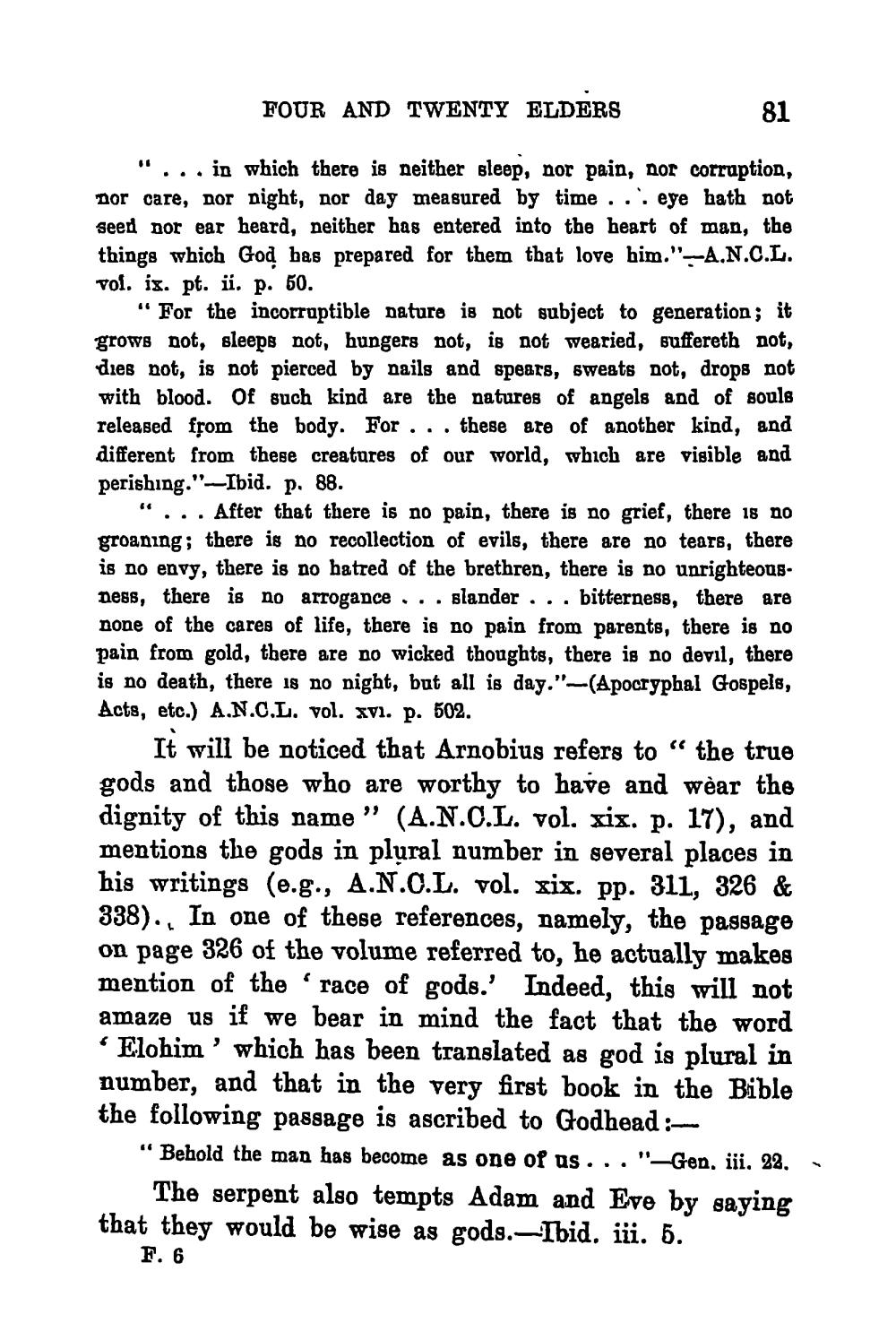________________
FOUR AND TWENTY ELDERS
81
"... in which there is neither sleep, nor pain, nor corruption, nor care, por night, nor day measured by time ... eye hath not seed nor ear heard, neither has entered into the heart of man, the things which God bas prepared for them that love him."-A.N.C.L. vol. ix. pt. ii. p. 50.
"For the incorruptible nature is not subject to generation; it grows not, sleeps not, hungers not, is not wearied, buffereth not, dies not, is not pierced by nails and spears, sweats not, drops not with blood. Of such kind are the natures of angels and of souls released from the body. For ... these are of another kind, and different from these creatures of our world, which are visible and perishing."--Ibid. p. 88.
"... After that there is no pain, there is no grief, there is no groaning; there is no recollection of evils, there are no tears, there is no envy, there is no hatred of the brethren, there is no unrighteousDess, there is no arrogance ... slander ... bitterness, there are none of the cares of life, there is no pain from parents, there is no pain from gold, there are no wicked thoughts, there is no devil, there is no death, there is no night, but all is day."-(Apocryphal Gospels, Acts, etc.) A.N.C.L. vol. xvi. p. 502.
It will be noticed that Arnobius refers to “ the true gods and those who are worthy to have and wear the dignity of this name" (A.N.C.L. vol. xix. p. 17), and mentions the gods in plural number in several places in his writings (e.g., A.N.C.L. vol. xix. pp. 311, 326 & 338). In one of these references, namely, the passage on page 326 of the volume referred to, he actually makes mention of the race of gods. Indeed, this will not amaze us if we bear in mind the fact that the word * Elohim' which has been translated as god is plural in number, and that in the very first book in the Bible the following passage is ascribed to Godhead:
“Behold the man has become as one of us ..."-Gen. iii. 22. -
The serpent also tempts Adam and Eve by saying that they would be wise as gods.-Ibid. iii. 5.
F. 6




